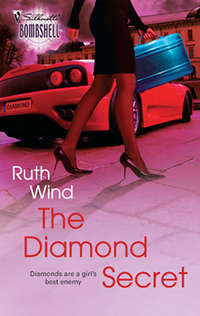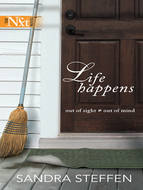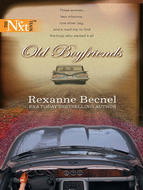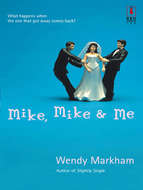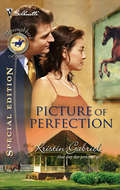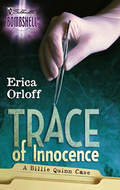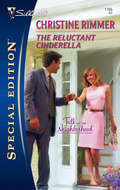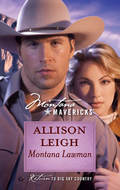Kitap dosya olarak indirilemez ancak uygulamamız üzerinden veya online olarak web sitemizden okunabilir.
Kitabı oku: «The Diamond Secret»
The switch of bags was not an accident.
Since I was one of only a handful of people who would recognize what the bag contained, I was convinced this was true.
The suitcase was an exact replica, which isn’t so weird—how many black, wheeled carry-on models are there, after all?
Where could it have gotten mixed-up? At security, the van, the security checkpoint? But I hadn’t paid attention. I’d been running late.
Inside I found a white box. Jewelry, I thought, opening it—after all, jewels were my stock in trade. Judging by the rest of the suitcase’s contents, the jewelry would be something understated. Probably gold, expensive.
It was expensive, all right.
Pillowed in the cotton batting was a jewel. A diamond. Katerina’s Blood.
Not only was it huge, it was very rare and storied, this jewel.
It was even cursed.
Dear Reader,
A couple of years ago, I had a chance to tour Scotland. It wasn’t one of those places I’d ached to visit my whole life long, but the chance arrived and I leapt upon it—I’m a travel bug and love to go almost anywhere.
And wouldn’t you know it? I fell madly in love—with the landscape, the culture, the people. I hardly knew at the time that Sylvie Montague was going to arrive in my life with her red leather miniskirts and talent for finding trouble, but arrive she did, driving a hot Alfa Romeo along twisting roads through tiny villages, with a skill only her Formula One father could have taught her.
Along with Sylvie came her unrequited love, and a devastatingly sexy European who may or may not be a bad guy. Sylvie’s stuck with him, anyway, and how she gets herself out of trouble was a blast to write. I hope you’ll enjoy it, too.
I love to hear from readers. Write to me via e-mail at ruthwind@gmail.com. Or visit my Web site at www.barbarasamuel.com.
May the wind be ever at your back!
Ruth
The Diamond Secret
Ruth Wind

RUTH WIND
is the award-winning author of both contemporary and historical romance novels. She lives in the mountains of the Southwest with her two growing sons and many animals in a hundred-year-old house the town blacksmith built. The only hobby she has since she started writing is tending the ancient garden of irises, lilies and lavender beyond her office window, and she says she can think of no more satisfying way to spend a life than growing children, books and flowers. Ruth Wind also writes women’s fiction under the name Barbara Samuel. You can visit her Web site at www.barbarasamuel.com.
Thanks to Alan McPhaetor for the good company and good information
Contents
Prologue
Chapter 1
Chapter 2
Chapter 3
Chapter 4
Chapter 5
Chapter 6
Chapter 7
Chapter 8
Chapter 9
Chapter 10
Chapter 11
Chapter 12
Chapter 13
Chapter 14
Chapter 15
Chapter 16
Chapter 17
Chapter 18
Chapter 19
Chapter 20
Chapter 21
Chapter 22
Chapter 23
Chapter 24
Chapter 25
Prologue
Few objects on earth can inflame the lusts of man as certain jewels will. They contain the one beauty that never fades or dies or changes—they embody power, sex, money. A single jewel, small enough to cradle in the palm of your hand, can be equal to the worth of a third world nation. They’re eternal, undying, mysterious, storied.
And nothing can bring out the evils of man like the lust to possess a particular jewel….
—Sylvie Montague, addressing Estate Jewelers International
Ayr, Scotland
There’s always a man, isn’t there, when things are about to hit the fan? In my case, there were three. One I’d loved a very long time. One had betrayed me. And one swept me into a drama I only half wished to escape.
The adventure began when I opened my suitcase in a hotel on the west coast of Scotland and learned that that somewhere over the Atlantic, someone had switched bags with me. Instead of two dozen pairs of (expensive!) thongs and a pair of red leather pants, I found a diamond.
A very large diamond.
Large and legendary, so infamous that I could not, for a long space of breaths, do anything but stare at the spectacular beauty of it, tucked in cotton batting by some unknown person.
I picked it up knowing two things. One: it was no accident that I, jewel expert Sylvie Montague, should be holding in her hand 80-something karats of medieval diamond.
Two: it was undoubtedly stolen.
Standing in a hotel room that smelled of the sea, I held the jewel in my hand, breathless, and tried to think when the bags could have been switched. I’d carried mine on the plane from San Francisco and shoved it into the very last remaining space in the overhead compartment. I couldn’t think of anyone opening the bin before the end of the flight, when I’d opened it myself and pulled my suitcase out.
But somewhere, someone had switched it. In my grasp was a diamond I had certainly not packed. My hands shook as I held it up to the light. My heart pounded.
It was unmistakable.
Katerina’s Blood.
Oh my God.
Chapter 1
In the treatise on gems by Buddhabhatta (Finot, “Les Lapidaires Indiens,” Paris, 1896) we read: A diamond, a part of which is the color of blood or spotted with red, would quickly bring death to the wearer, even if he were the Master of Death.
—Folklore of Diamonds
Three hours earlier
The flight from San Francisco to Glasgow was a miserable one. Not that there’s any such thing as a good transcontinental flight. They’re always too long, too boring, too cramped and not even the luxury of my own back-of-the-seat movies does much to alleviate the agony of sitting still for that long.
The only decent thing about the whole flight was a guy across the aisle. Dark hair, cut close to his head, a little shadow of beard, a sharply cut mouth with full lips. I pegged him as Continental, and then spent some of the long, boring time trying to figure out why. The sweater, perhaps—a wool turtleneck. His clean, long hands. The shape of his mouth, which looked like it might shape words with long, rolling r’s. French, maybe.
At the end of a flight like that, all you want is to get off the freaking plane. It felt good to just walk down the concourse pulling my bag, stretching out the cramped muscles, shaking off the thickness of over-breathed air. I had checked no luggage, so made straight for the car rental counter, mentally crossing my fingers that my father had come through for me.
When I said my name, “Sylvie Montague,” the buzz-cut, redheaded youth behind the counter blinked.
“Aye,” he said, his eyes widening. “It’s all set up. I’ve got it right here.” With a gesture of reverence, he handed me the keys to an Alfa Romeo Spider.
Great car. Fast, elegant, very European. My father had come through for me. I grinned and slapped the keys in my pocket. “Thanks.”
“Are you related to him?” the youth asked. “To Gordon Montague, I mean.”
“Mmm. My father.”
“He’s the greatest racer ever.”
“Thanks. I’ll tell him.” When I turned around, I nearly slammed into a burly man right behind me. With a balding head of gingery hair and pale freckles across his forehead and nose, his ruddy cheeks made him look as if he were about to have a heart attack on the spot. I forgave him the glare he leveled on me.
“Sorry,” I said.
He grumbled something and shoved by me.
The car was in the parking lot, taut and silver, worthy of the admiring stroke I gave her sleek rear. I opened the driver door and was stripping off my coat when the beautiful—Frenchman?—from the plane walked by.
“Is she yours?” he asked, cocking a brow toward the car.
The accent was not French. It sounded eastern European, not quite Russian, not quite Polish. I couldn’t place it, but it was charming anyway.
I grinned. “For today.”
“Sometimes, that’s all we need, no?”
“Yes.” I nodded and made a show of unlocking the trunk. He walked down the length of her, admiring the curves swooping over the tires, the line of the hood. One hand was loosely tucked in the pocket of his corduroy slacks, and a leather jacket hung in the crook of his elbow. Every inch of him declared a casual Continentalness, that whiff of minor royalty. I liked his very thick, dark, glossy hair, a touch too long, extravagant with ringlets, and his beautiful white hands, long-fingered, artistic-looking.
I tucked my suitcase and coat into the trunk. Or boot, I suppose, since I was now in the UK again. I asked, “Is this your first trip to Scotland?”
“No. I have many friends here. You?”
“I’m here on business, and visiting family.”
“Ah.” He glanced toward the street, appeared to be thinking something over.
When he didn’t speak, I slammed the boot closed and smiled. “Enjoy your trip.”
His eyes were a strong blue when he looked back at me. “Are you in a hurry? Would you like to have a little supper with me?”
I had to shake my head. “Sorry. I have to be somewhere in an hour.”
“Ah,” he said, and cocked an eyebrow, obviously assuming I was going to meet my lover. I didn’t dissuade him, only smiled slightly. His shrug said there was never any harm in trying. “Perhaps we’ll meet again another day.”
I lifted a shoulder.
Several other passengers were picking out their cars from the lot, and I saw the red-faced pit bull from the rental car line. He climbed into a Nissan and slammed the door. He made me think of a cartoon, squished into the little car, and if his expression was anything to go by, he was Not Pleased.
A sudden thought made me wonder if he was paparazzi. They only bugged me now and then, but with my father racing this week and my own visibility on the jewel case—which they were calling the Kingpin’s Crown Jewels—I’d probably have to put up with them.
“Au revoir,” said the Continental.
I’d been distracted by the other man. “Au revoir,” I said and fit my key into the door lock. He slung a slim leather bag over his shoulder and headed for a different section of cars.
Too bad, I thought. I have no illusions about the permanence of holiday love affairs—or, well, love affairs in general—but there was no harm in a little flirtation. He looked as if he’d be one of those very dramatic and passionate sorts, the kind who likes to tuck a woman into his arm and kiss her wildly. It gets old to be smothered like that after a while, but it’s nice for the short term. And really, it had been a while.
I glanced over my shoulder to see if the red-cheeked man had gone, and he was pulling into traffic. Not a danger, then. I dashed after the Continental.
“Um…” We hadn’t exchanged names. “Wait!”
He paused. I held up a finger and tugged my card out of my wallet, scribbled a number on the back and gave it to him. “I’ll be in Ayr for a few days, if you’re in the neighborhood.”
“But I am going to Ayr!” he exclaimed in surprise.
“You are?” I echoed. It’s not a particularly large town, a holiday hamlet favored by Glaswegians in the summertime. But it was not yet quite April, and the weather was too cold and unstable for seaside retreats. “I didn’t think anyone visited Ayr until June.”
He inclined his head slightly. “Perhaps not. I have a good friend there.” He looked at the card, raised dark eyes to mine. “Sylvie. That’s French, no?”
“My grandmother’s name.” A Parisian swept off her feet by a Scottish soldier in WWII. “She lives in Ayr. That’s who I’m going to see this afternoon.” I looked at my watch and realized I needed to get moving. Backing away, a palm over the face of the watch as if to hide the time from myself, I said, “I need to be there by tea.”
“Will you be free later, then?” His smile showed slightly uneven, but very white teeth. “Shall we have supper?”
I thought about the requirements of the evening. No doubt a cousin or two would be at my grandmother’s house, and there would be catching up to do. Then I could plead exhaustion—it wouldn’t be far from the truth—and get to the hotel by seven. “At the Drover pub, at eight?”
He tucked my card into his front pocket. His blue eyes glittered. “I will look forward to it.”
I realized as I got in the car that I still had not asked his name.
It seemed a portent, somehow.
Chapter 2
The 4 C’s of diamond grading are Cut, Color, Clarity and Carat Weight, but remember there is a full 13-point grading scale, and the best consumer will understand each point.
—www.costellos.com.au
I headed for Ayr on the A-77, just ahead of the worst of rush hour. It’s called the killer road for a reason. Narrow, unpredictable, given to odd lane shifts and sudden roundabouts—exactly the reason I love it. I learned to drive at my father’s knee, one of the only things he has ever been good for. Like him, I love fast, sharp and quick. Rush hour is just too congested to be much fun.
Probably just as well I had to limit my speed. My reflexes were probably not their best after such a long flight. Rolling down the windows to let the cool wind blow the jet lag out of my brain, I turned the radio to a Glasgow station pouring out a Scottish version of heavy metal. The voices between songs were so thickly accented I could only understand about every third word, but it didn’t matter.
Home.
After a fashion. My mother’s home, anyway, a place I spent a lot of time as a girl, splitting time between my father and mother. I was there to work at the request of the Glasgow police department, to evaluate and catalogue a cache of jewels recently seized when a high-profile drug runner known as The Swede was murdered two weeks ago.
The jewels stunned everyone, and various theories were batted around before they decided to call me. The investigator in charge had followed a case last summer when the Egyptian police called me in to help recover the Nile Sapphire, a very old and fabled jewel. The inspector also read that my mother was Scottish and trusted me a little more because of it. He called to see if I’d consult, had offered airfare and a hotel room in Glasgow for the duration.
It was a no-brainer. I was coming up on the one-year anniversary of my divorce, and didn’t want to spend the week moping back at home in San Francisco. It had also been a while since I’d seen my mother’s family, and although I do travel a bit for the job, most of it is pretty dull stuff—assessing estates and that sort of thing. Mostly, of course, I’m crouched over dusty brooches in mildewy rooms, giving myself a crick in the neck as I peer through a loupe and take notes on clarity and color.
Another reason driving was so thrilling. There was nothing like getting on a tight, challenging road in a good machine after a long day of estate assessment.
Or a nine-hour flight.
I turned up the radio, tucked a flying lock of hair behind my ear and passed a vivid blue Fiat driven by a man in shirtsleeves and dark sunglasses. I saw him take note of my blond hair and sexy blouse, and, with a slight grin, I gunned it.
It would be a pleasure to comb through the jewels of a drug lord, who’d had, by all accounts, very good taste. The inspector had mentioned several sapphires in particular; thought they might be connected to a group that had gone missing more than six years ago. I was excited to take a look at them.
The blue Fiat zoomed by me, and I glanced over curiously. The man driving was not thrilled to have been passed up by a girl. I saw it the minute he glanced over at me, a little rumbling of competition. A growl of his engine.
I smiled. The Spider was a dream car, more than enough for an itty-bitty challenge like this. The traffic was heavy and I wouldn’t be an idiot and risk other people’s lives, but I’d play for a minute with Tom Fiat.
Pressing down with my foot on the accelerator, I coaxed the Spider next to the Fiat, and edged ahead, just enough to let him know I was doing it on purpose. He gunned it, and tugged ahead, but the Spider wasn’t even panting yet, and I caught him easily, rumbling along beside him.
We sailed around a tight curve, bound on either side by rolling fields, coming up behind a semi that was lumbering along on the right.
Signs warned that the road would narrow to two lanes in 1000 meters, 500.
I knew I could take him. Through my body, I could feel the smooth connection between the machine and myself, as if the engine were part of my fingers, my arms. I rode the curve, hugging the road, and passed the truck. Wind whipped my hair around my neck. I downshifted, whirled around the turn. On the right, cars going the opposite direction roared by, mere inches away across the dividing line.
I grinned to myself. Exhilarating!
Tom Fiat had steam coming out of his ears as he whizzed around the lorry to catch up with me. Everyone in Scotland drives as if they’re muttering “bastard” under their breath, anyway, and there’s a reckless fatalism that can give even me a few moments of pause.
Still. It was a point of pride just now. I held to the lead.
Ahead loomed the narrowing lanes. Tom was about to kill someone. I let up on the gas, hugged the road to the left to let him pass and waved as he went by. His face was a dull red of fury, and I laughed to myself. No one ever expects a woman to drive the way I do.
But most women don’t learn to drive from a world-class Formula One driver. My father, the legendary American Gordon Montague, is one of the most revered drivers on the planet at the moment, and I’ve no doubt the legend will live long after he kills himself in some spectacular wreck at Monaco or Barcelona. He’d like that, dying dramatically in some glamorous spot, mourned publicly by whatever young wife he happened to have picked up at the moment.
Dear old dad.
I was glad of the car, and wished, briefly, that he was with me. It’s been a while since we’d had any time together. I was tempted to ask him to meet me in Glasgow after the Malaysian Grand Prix in Kuala Lampur, but I had a feeling he’d say no. Scotland makes him feel guilty.
As well it should.
Scotland is my mother’s place, and I admired it now through her eyes—a countryside as calming as the wind blowing in my window. It was lambing season, and little balls frolicked in the fields among the more sedate sheep and the odd shaggy red cow. Trees bent halfway sideways belied the bucolic scene, showing what the winds are like around here, but on this bright day, I could even see the island of Arran in the distance, an uneven line of pale blue mountains on the horizon.
I’d opted to stay in a hotel rather than with a relative, even though there are several I could choose from in my mother’s hometown. Which is actually the trouble. If I picked one, I’d hurt someone else’s feelings. A hotel room is easier.
The job in Glasgow would start in a couple of days. My plan was to knock around Ayr and the seaside of my childhood, visit my aunts and cousins, make a stop to put flowers on my mother’s grave, then head back to Glasgow for the assessment, maybe catch some shows or something.
Since I didn’t know that giant diamond was stashed away in my bag, I stopped first at my grandmother’s house. She lived on a well-kept street of what we’d call fourplexes. Row houses, they call them, and there are thousands and thousands of them all throughout the U.K., built right after the war.
That would be the war, World War II.
My grandmother lived on the end of her building. Her windows were polished, as were all the windows on the street, and red tulips had pushed their way up into the spring air. She’d no doubt been waiting for me—sitting with her next-door neighbor, Anna, and a blue budgie who sang to her from his perch—because she flung open the door. “Ma cher!” the elder Sylvie cried. “I am so happy to see you!”
I dashed up the narrow sidewalk to hug her. Tiny as a sparrow, her white hair now cut neatly around her sharply angled face, she was still a beauty at seventy-eight. She had nary a wrinkle. “Come in, ma poulette!” she cried. “Have you had your tea?”
“No, of course not! Not if I had a chance to have your coffee and some cake.”
Over my shoulder, my grandmother glared. I turned to see a battered Mini crawling down the street. “Go on with you!” she cried, sounding more Scottish than French. “Nosy rats. They’ve been nosing around all day.”
Paparazzi again. I was tempted to flip them off, but it would only give them what they were after—something to print in their trashy little journals. My hugging an old woman wouldn’t do much for their circulation.
In the vestibule, she took my coat and led me into the tiny sitting room, where her best friend Anna waited. Slim and thoughtful, Anna had always been one of my favorites. She told wonderful stories of her girlhood and the Scotland that existed before the war, and she did not suffer fools lightly.
“Hello, Sylvie,” she said. “We’ve just seen your father on television.”
“Really.” I settled in the place they made for me before the fire, feeling as pampered as a beloved princess. “Tell me all about it.”
In the street outside the window, the beat-up Mini rolled by again. Something about the man behind the wheel was seedier or grimmer or something than the average—even average tabloid—photographer. I narrowed my eyes and stood up to watch him go by. He was very interested in my car.
“What is it, dear?” Grandmother asked.
I shook my head, unwilling to worry them. “Just that photographer again.”
But I wondered.
Ücretsiz ön izlemeyi tamamladınız.
